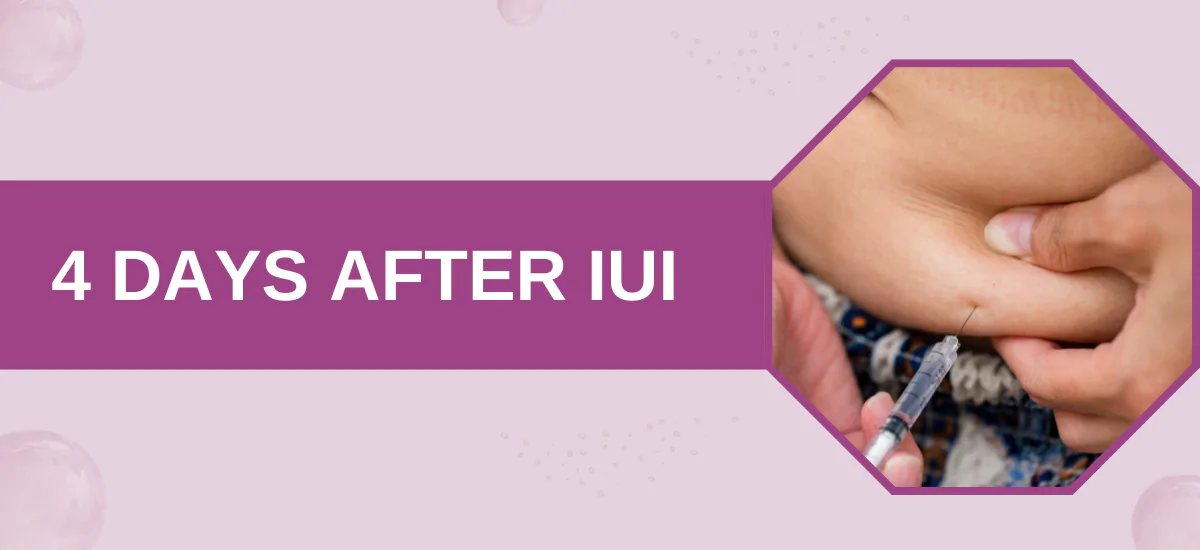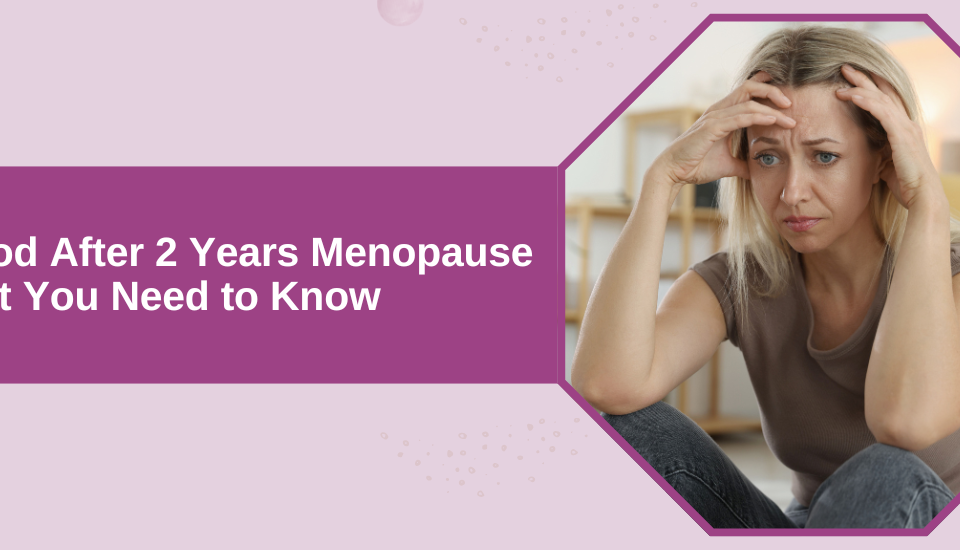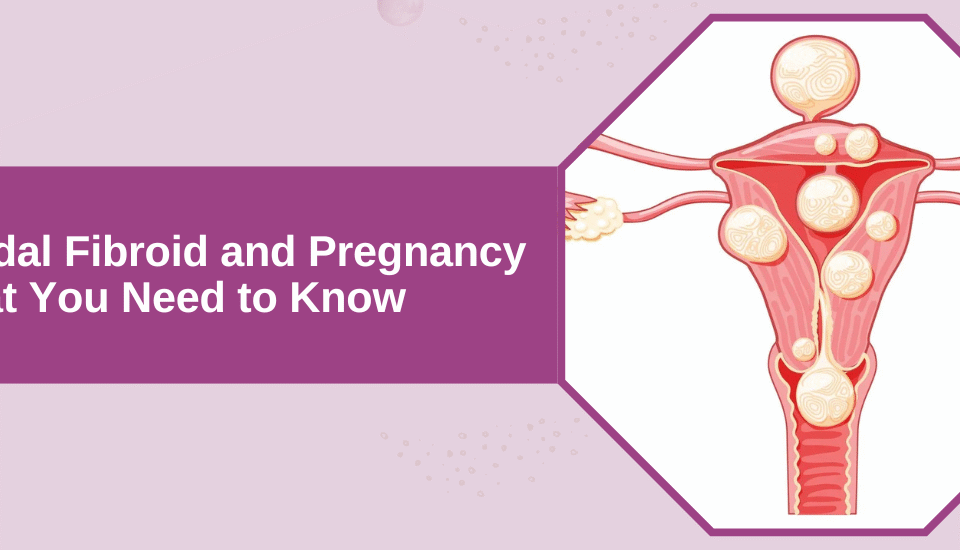- Have any questions?
- +91-98717 17305
- babiesandus12@gmail.com
Four Days After IUI: Key Symptoms, Signs, and Guidelines

13 Days After IUI White Discharge
June 6, 2024
Stomach Pain After 15 Days of IUI
June 12, 2024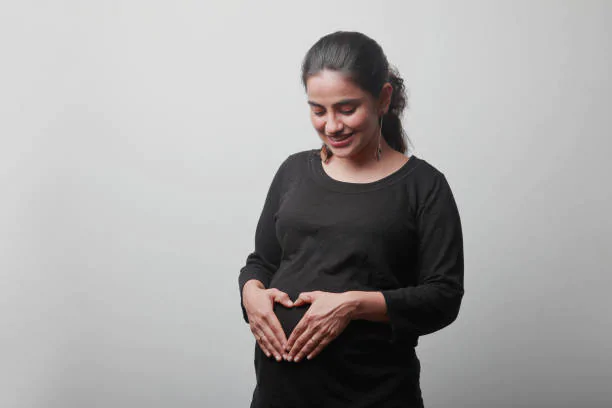
Nowadays, many couples face fertility challenges. But there’s hope with Assisted Reproductive Technologies (ART) like IUI. It is an effective option for couples dealing with issues like low sperm count, poor motility, cervical mucus problems, or unexplained infertility.
At Babies & Us IVF Centre in Mumbai, we understand the emotional journey of couples struggling with infertility. Our team of experienced fertility specialists provides personalized care and support throughout. From initial consultations to post-procedure follow-ups, we are dedicated to helping couples achieve their dream of parenthood.
In this blog we will focus on four days after IUI, highlighting key symptoms, signs, and guidelines to help you navigate this crucial period.
Let’s explore what to expect and how to care for yourself during these critical days.
Are you struggling to conceive? Learn how IUI can be your path to parenthood.
Overview
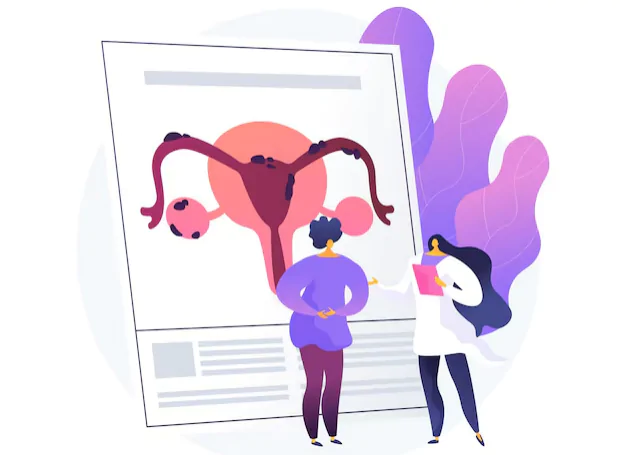
Intrauterine insemination (IUI) is a treatment to help infertile couples conceive. Sperm from the male is directly placed inside a woman’s uterus to facilitate fertilization. This procedure is commonly used for couples who have fertility issues, cervical issues, or male factor infertility.
IUI is a relatively simple and non-invasive procedure that is performed in a doctor’s office. It is often used in conjunction with ovulation-inducing medications to boost the chances of successful fertilization.
Success rates for IUI vary depending on various factors such as the age of the woman, the cause of infertility, and the quality of the sperm. On average, the success rate of IUI ranges from 10% to 20% per cycle.
IUI success depends on whether implantation takes place or not. That is why four days after IUI is a crucial time when the implantation is most likely to occur. Hence, confirming your pregnancy.
Are you struggling with infertility and considering IUI as an option? Book your consultation with experienced professionals today!!
Curious about what happens after IUI? Here’s what you might experience.
4 days after IUI what to expect?
4 days post IUI, some women may experience changes in their bodies, such as:
- You may experience light spotting or cramping. These can be signs of implantation. However, these are not definitive indicators.
- Many women are on progesterone supplements after IUI. They help in supporting the uterine lining. These supplements can cause breast tenderness, bloating, and mood swings.
- Vaginal discharge may increase. It is normal after IUI.
It is essential to remember that the presence or absence of these changes does not confirm or rule out pregnancy after IUI. The only way to know for sure is to take a pregnancy test around two weeks after the procedure.
Wondering if your symptoms are signs of pregnancy? Here’s what you need to know.
Symptoms 4 days after IUI
After the procedure, some women may experience symptoms that can mimic early pregnancy signs.
4 days after IUI symptoms may include the following:
- Light spotting
- Cramping
- Breast tenderness
- Fatigue
- Mood changes
“However, these symptoms can also be caused by factors unrelated to pregnancy. It’s essential to take a pregnancy test around two weeks after IUI to confirm pregnancy,” says Dr. Nandita Palshetkar, an experienced fertility specialist at Babies & Us IVF Center.
Now let’s move on to the positive and negative signs after IUI.
Positive and negative signs to look out for
Positive signs four days after IUI include:
- Approximately 15 to 25% of women may experience light spotting, indicating potential implantation.
- A rise in basal body temperature can suggest implantation.
- Around 60% of women may notice breast tenderness as an early pregnancy symptom.
Negative signs may include:
- Not experiencing any symptoms doesn’t necessarily rule out pregnancy, as many women have none early on.
- Some women may experience menstrual-like cramping 4 days after IUI, which could be mistaken for pregnancy or the onset of menstruation.
- Taking a pregnancy test too early may yield a false negative, so it’s best to wait until closer to your expected period date for accurate results.
If you’re experiencing any of these signs or have questions about your fertility journey, schedule a consultation today to learn more about your options and take the next step toward parenthood.
When is the right time to take a pregnancy test after IUI? Find out here.
Can you go for a pregnancy test four days after IUI?
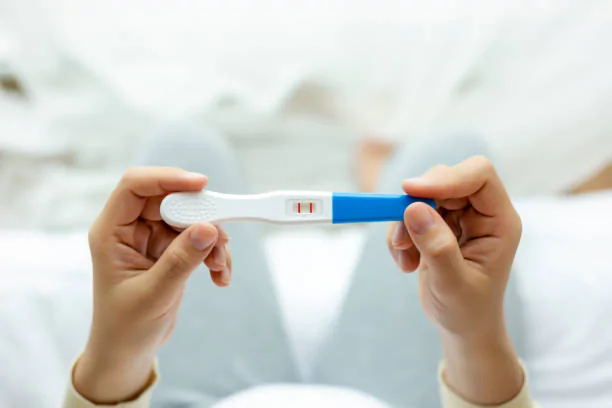
It is generally recommended to wait at least two weeks after IUI before taking a pregnancy test. Testing too early can result in a false negative, as the levels of pregnancy hormone (hCG) might not be detectable yet.
Four days post-IUI is too soon to detect a pregnancy. During this time, the fertilized egg may be in the process of implanting into the uterine lining, and hormone levels may not have risen enough for detection.
To avoid potential disappointment from inaccurate results, it is advisable to undergo a pregnancy test around two weeks post-IUI. Taking a pregnancy test at this time will provide the most accurate results. Your fertility specialist will tell you the best time for testing based on your circumstances.
Want to boost your chances of success after IUI? Follow these do’s and don’ts.
Do’s and don’ts
After an IUI procedure, there are several do’s and don’ts to keep in mind to improve your chances of success:
Do:
- Rest and avoid strenuous activities
- Stay hydrated and eat a healthy diet
- Take prescribed medications
- Attend follow-up appointments
Don’t:
- Engage in intense exercise
- Consume excessive caffeine or alcohol
- Use hot tubs or saunas
- Smoke or be exposed to smoke
- Stress unnecessarily
For personalized guidance on post-IUI care and to maximize your chances of success, consult with your healthcare provider.
FAQs
What symptoms might I experience four days after IUI?
Some women may experience mild cramping or spotting, but it’s not a definitive sign of pregnancy. These symptoms can also be due to the IUI procedure itself.
Can I resume normal activities four days after IUI?
While you can resume most activities it is advisable to avoid strenuous exercise and heavy lifting. Resting and taking it easy can support the implantation process.
Is it normal to feel bloated four days after IUI?
Yes, feeling bloated or experiencing mild abdominal discomfort can be normal after IUI due to hormonal changes and the procedure’s effects on the ovaries.
What if I don’t experience any symptoms?
Four days post IUI, many women may not experience symptoms. Lack of symptoms doesn’t always mean you’re not pregnant. Symptoms can be subtle, and testing too early may give false results. About 50% of pregnant women have no early symptoms, so it’s not a reliable indicator.
References:
https://www.ncbi.nlm.nih.gov/pmc/articles/PMC3859121/
https://my.clevelandclinic.org/health/treatments/22456-iui-intrauterine-insemination

